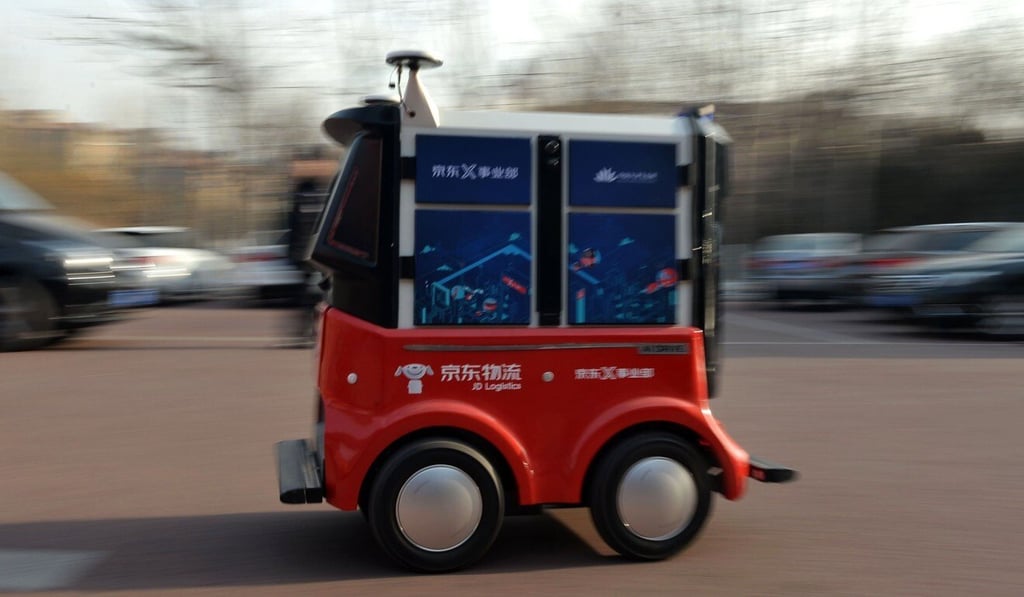Meituan, JD.com, Li Auto-backed Neolix win licences to test unmanned delivery in Beijing
- Three companies have been granted licences to test self-driving delivery vehicles at an economic and technological development zone
- China is under pressure to develop autonomous technology as its population ages and labour pool shrinks

China’s capital city is paving the way for more robots on the road as the country’s pool of cheap labour shrinks and working conditions in delivery companies come under scrutiny.
E-commerce platform JD.com, on-demand service platform Meituan, and Li Auto-backed autonomous driving start-up Neolix received licences on Tuesday to test their autonomous delivery vehicles in the Beijing Economic-Technological Development Area, a government-developed zone in the southern part of the city known as E-Town.
The rules categorised the robo-vans as non-motor vehicles, suggesting that they will need to stay in the same lane as the city’s bicycles and electric scooters. In addition, the delivery drones will need to have safety drivers, both “on-site” and remotely, according to a statement posted on the pilot zone’s official WeChat account.
“Unmanned delivery vans are of great significance in promoting the transformation of the logistics industry from labour-intensive to technology-intensive,” said the statement.

Beijing said last year it was building a cloud-based pilot zone for self-driving vehicles in E-Town covering 60 square kilometres, featuring integrated smart roads, intelligent vehicles, real-time cloud data transmission, a reliable network and precise maps, according to state-run news agency Xinhua.